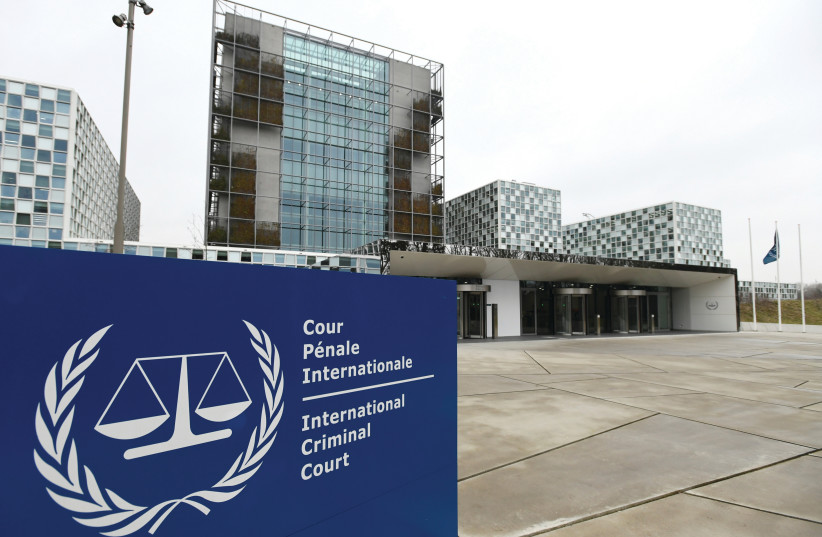The push for an International Court of Justice (ICJ) advisory opinion on Israel’s control of and practices in the West Bank may not be coming from the Palestinian’s position of strength on the international stage, but to provoke movement among other stagnant legal efforts at the ICJ and International Criminal Court, Dr. Daphné Richemond-Barak, a professor of international law at Reichman University, argued to The Jerusalem Post.
Richemond-Barak, who worked at the ICJ during the deliberations on the 2004 advisory opinion on Israel’s security barrier said there was “something strange about the Palestinians using a tool last used 20 years ago. It has a similar question, framing, even similar time of year.”
She noted that the Palestinians had large legal efforts at the two main international legal forums, the ICC and ICJ, that had not seen any movement.
In 2018, the Palestinian Authority instituted proceedings against the United States for allegedly violating the Vienna Convention by establishing a diplomatic mission outside the territory of a receiving state after then-US president Donald Trump recognized Jerusalem as the capital of Israel and announced the American embassy would move to the city.
The US argued that the convention, which is a treaty for state actors, didn’t apply to its relationship with the Palestinians. There have been no updates in that case since November 2018, when the court decided to hear arguments for and against the ICJ’s jurisdiction on the issue.

Richemond-Barak said that if the Palestinians were entitled to bring a case to the ICJ, it would strengthen the status of a Palestinian state on the international plane.
In 2020, Israeli leaders and activists expressed great consternation over the announcement by then-ICC prosecutor Fatou Bensouda that the body would investigate war crimes allegations in Israel, Gaza and the West Bank. However, in December. annual court reports showed little to no movement on the investigation.
“The Palestinians put a lot of effort and creativity into these but they have not yet delivered.”
Dr. Daphné Richemond-Barak
“The Palestinians put a lot of effort and creativity into these but they have not yet delivered,” said Richemond-Barak. She suggested that an ICJ advisory opinion could push the courts to act on these stagnant legal issues.
Richemond-Barak compared the international legal fora landscape to a chess board, moving one piece can change a game that has been stalled.
“If the game is stalled, players will move pieces in an effort to regain an advantage and get the game going again,” she explained. “Which is what this advisory opinion could do – reinvigorating the two main processes that were initiated at the ICJ and the ICC.”
If this is the case, Richemond-Barak said it was “not a sign of strength, it’s a sign of weakness.”
Palestinian move for ICC, ICJ not sign of strength but sign of weakness - expert
Prof. Eugene Kontorovich of the George Mason University Law School said to the Post that there was no great mystery about why the Palestinians pursued the ICJ advisory opinion. It is a low-cost “stunt” that internationalizes the conflict.
“It's part and parcel of past strategy,” he said. “They can't lose" because the Palestinian diplomatic mission has a built-in majority.
According to Kontorovich, the Palestinian diplomatic strategy “depends on creating a universe and concepts that only apply to Israel, and successful attempts to use the appearance of law to discredit Israel.”
Both experts told the Post, however, that the strategy behind the vote was not related to the new Israeli government, which was sworn in on Thursday. This narrative has been suggested by some such as Palestinian UN envoy Riyad Mansour, according to Arab News.
“I don't think anyone can seriously claim that if [former prime minister Yair] Lapid was in power the vote wouldn’t have occurred,” said Kontorovich, who noted that sources familiar with the process had seen the vote “coming down the pipeline” six months ago.
Richemond-Barak said the ICJ advisory opinion was “not related to the Israeli elections. People interpret such events as being in response to local politics. Such things take a very long time to draft and develop.”
